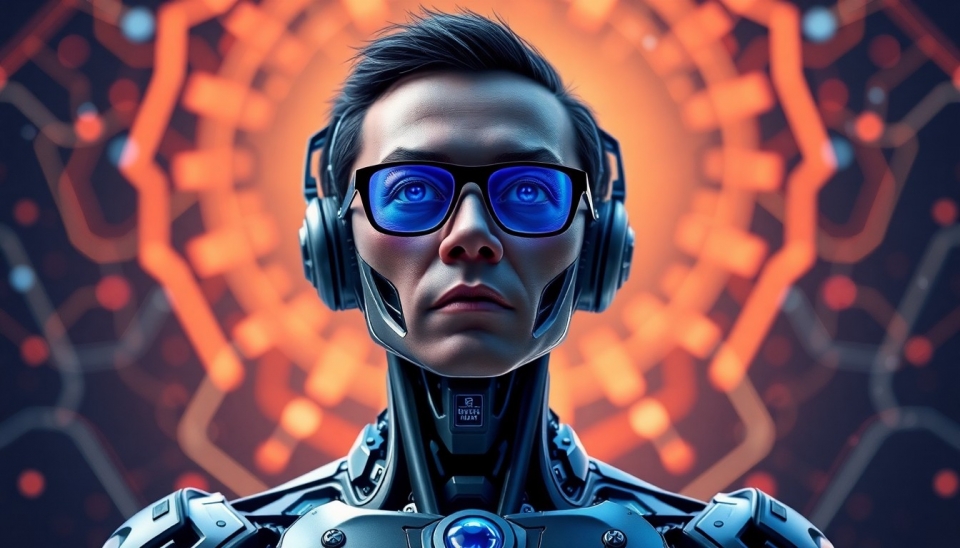
In a rare public speech, Jack Ma, the co-founder of Alibaba Group, has taken center stage, advocating for the transformative power of artificial intelligence (AI) in business and society. This event marks one of Ma's few appearances since China’s regulatory crackdown on his fintech company, Ant Group, which was once poised to become the world’s largest IPO. His remarks resonate amid China's renewed focus on fostering technological innovation while maintaining regulatory oversight.
During his address at a technology conference, Ma emphasized the significant potential of AI to reshape industries and enhance productivity. He outlined his vision for AI as not just an enhancement but a necessary evolution for businesses aiming to thrive in a fast-changing global market. Ma called for collaboration between the government, industries, and entrepreneurs to ensure that the integration of AI is done safely and ethically, supporting societal growth while minimizing risks associated with rapid technological advancements.
Ma’s speech comes at a crucial time when the Chinese government is balancing its agenda of tech innovation with stringent regulations aimed at controlling market monopolies and data security concerns. In the past couple of years, the Chinese tech sector has faced intense scrutiny, leading to significant reforms and a re-evaluation of operational practices among domestic giants. The former billionaire indicated that the obstacle posed by regulatory measures should not impede technological progress but rather inspire deeper reflection on the intersection of innovation and ethics.
In a notable shift from his previous lengthy silences since the Ant Group's halted IPO, Ma’s engagement with the public highlights a growing trend among tech leaders to embrace discussions about AI. He noted how technology like AI can bridge gaps, enhance connectivity, and create avenues for sustainable development. His insight into AI comes with a sense of urgency, as he encourages businesses and startups to harness AI solutions to address real-world problems, such as climate change and improving living standards.
Moreover, Jack Ma’s reference to his initial venture into e-commerce and how tech revolutionized retail serves as a significant reminder of the transformative potential that lies ahead with AI. He urged young innovators to take bold steps toward implementing AI while being cognizant of the ethical implications associated with its deployment. This balance of ambition and responsibility reflects a broader narrative emerging in the tech community, reaffirming the importance of a thoughtful approach as advancements continue to unfold.
Critics have pointed out that while Ma's plea for AI innovation is commendable, it is crucial for companies to avoid redundancies associated with rapid deployment without clear frameworks. Furthermore, Ma himself has faced considerable scrutiny post-IPO cancellation, raising questions about the influence of individual corporate leaders on regulatory frameworks. This periodic tension encapsulates the current landscape of China's tech industry, where opportunities and challenges are intertwined.
Looking ahead, Ma's appeal serves as a rallying cry for entrepreneurs and companies navigating the complexity of artificial intelligence. He concludes with a hopeful message, expressing optimism about the future and the essential role that AI will play in addressing global challenges, thereby inspiring a new generation of leaders to embrace innovation with purpose.
As China seeks to not only compete on a global scale but also to maintain control over its tech landscape, Ma's insights could signal the beginning of a more collaborative approach between government and industry leaders moving forward.
In summary, Jack Ma's unexpected return to the public eye and his strong advocacy for AI offer a glimpse into a future where technological progress aligns with ethical considerations, marking a pivotal moment for the Chinese tech landscape.
#JackMa #ArtificialIntelligence #TechInnovation #AntGroup #ChinaRegulation #ECommerce #FutureOfTech #AIAdvancements #SustainableDevelopment
Author: Liam Carter


